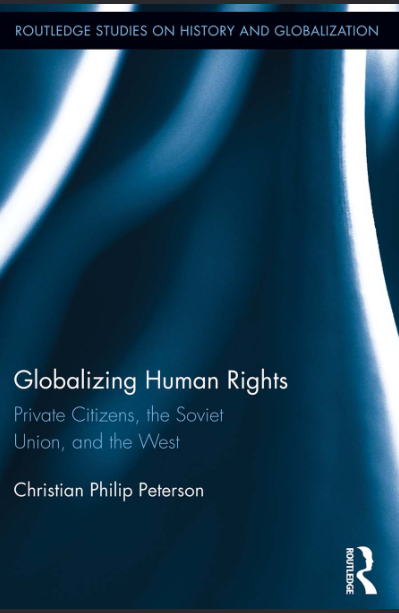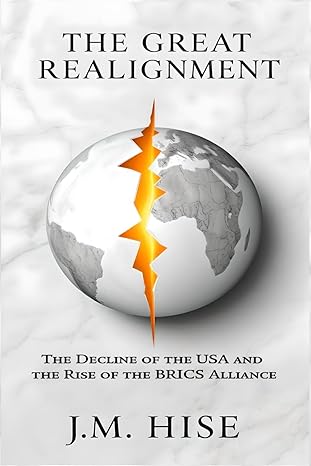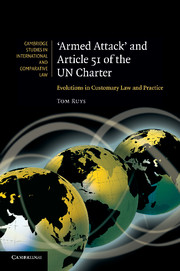The U.S. President Gerald Ford and his subordinates recognized that many Americans viewed the signing of the Final Act and the pursuit of détente with the Soviet Union as little more than a shameful capitulation. Behind the scenes, they grappled with the question of how to justify signing this agreement and working to improve relations with the Soviet Union. On the eve of the signing ceremony, Secretary of State/National Security Adviser Henry Kissinger advised Ford to remember that “the CSCE results are not wholly what the Soviets wanted.” Far from being a U.S. defeat, Kissinger wrote, “the philosophy which permeates most of the CSCE’s declarations is that of the West’s open societies [Kissinger’s italics].” On paper, “the thrust implicit in this declarations is toward greater human rights, the freer movement of people and wider access to information.” After making this observation, Kissinger offered an important caveat. He told Ford that for all its potential strengths, any “fi nal judgment” on the 2 Globalizing Human Rights Final Act would depend on whether the Western world or Soviet Union did a better job of propagating “its version of the CSCE and . . . [the] future [of] European security.”2 In retrospect, Kissinger’s words appear quite prophetic. The signing of the Final Act helped bring about a global campaign that challenged Soviet human rights violations and raised fundamental questions about what con- stituted a legitimate U.S.-Soviet détente. Contrary to the wishes of Kissinger and Soviet policymakers, this struggle did not just involve debates between U.S. executive branch officials and Soviet policy makers. When transmit- ting credible information across borders, Soviet/Eastern European dissent- ers, Western private citizens, and members of the U.S. Congress exploited the language of the Helsinki Accords to forge a transnational network committed to globalizing the issue of Soviet human rights violations. The strength of this network played a fundamental role in making the subject of human rights an important aspect of Cold War competition until the USSR collapsed in 1991. This work will explore the complexities of the role human rights played in U.S-Soviet relations from the late 1960s to 1989. Unlike some treatments, it will not fall into the trap of addressing this topic through a narrow “state-cen- tric” approach that privileges the behavior of top-level policymakers. Instead, the following pages will employ a transnational framework that examines the interactions among the U.S. executive branch, U.S. Congress, and Soviet government, as well as Western European leaders, non-governmental orga- nizations (NGOs), and private citizens. Employing such a framework does not mean that this study will make a sharp distinction between domestic and foreign affairs. The following pages will show how understanding the role human rights played in U.S.-Soviet relations “requires a global perspective that looks across national boundaries and within societies at the same time.”3 By following this approach, readers will see how domestic concerns about human rights violations often influenced Soviet and U.S. foreign policy; they will also come to appreciate how efforts to promote human rights abroad sometimes shaped U.S. and Soviet domestic policies. Before exploring this development, we need to keep in mind that the term “dissent” has no simple defi nition.4 In the case of the USSR, the term refers to a wide array of individuals such as democrats, refuseniks (Jews whose emigration requests had been denied), and nationalists in republics like Ukraine who expressed disapproval of the Soviet government’s official policies in some sort of public fashion. In a broader sense, it can even refer to private citizens and government officials who engaged in non-sanctioned activities behind closed doors, such as discussing non-official poetry and debating Western European social-democratic ideas. 5 For the purposes of this study, the term “dissenters” will refer to individuals in the Soviet Union and Eastern Europe who called into question their governments’ policies in some sort of public fashion or received punishment for participating in non-official activities.
چکیده فارسی
جرالد فورد رئیس جمهور ایالات متحده و زیردستانش دریافتند که بسیاری از آمریکایی ها امضای قانون نهایی و پیگیری تنش زدایی با اتحاد جماهیر شوروی را چیزی بیش از یک تسلیم شرم آور می دانند. آنها در پشت صحنه با این سوال دست و پنجه نرم می کردند که چگونه می توان امضای این قرارداد و تلاش برای بهبود روابط با اتحاد جماهیر شوروی را توجیه کرد. در آستانه مراسم امضای قرارداد، هنری کیسینجر، وزیر امور خارجه و مشاور امنیت ملی، به فورد توصیه کرد که به یاد داشته باشد که «نتایج CSCE کاملاً آن چیزی نیست که شوروی میخواست». کیسینجر نوشت، نه اینکه شکستی برای ایالات متحده باشد، «فلسفه ای که در بیشتر اعلامیه های CSCE رسوخ می کند، فلسفه جوامع باز غرب است. روی کاغذ، "هدف ضمنی در این اعلامیه ها به سمت حقوق بشر بیشتر، حرکت آزادتر مردم و دسترسی گسترده تر به اطلاعات است." پس از انجام این مشاهده، کیسینجر یک هشدار مهم ارائه کرد. او به فورد گفت که با وجود تمام نقاط قوت بالقوهاش، هرگونه «قضاوت نهایی» در مورد قانون نهایی حقوق بشر 2 به این بستگی دارد که آیا جهان غرب یا اتحاد جماهیر شوروی کار بهتری در تبلیغ «نسخه خود از CSCE و . . . [آینده] [امنیت] اروپا.»2 در نگاهی به گذشته، سخنان کیسینجر کاملاً پیشگویی به نظر می رسد. امضای قانون نهایی به ایجاد یک کمپین جهانی کمک کرد که نقض حقوق بشر شوروی را به چالش کشید و سؤالات اساسی در مورد آنچه که تنش زدایی مشروع ایالات متحده و شوروی را تشکیل می داد، ایجاد کرد. برخلاف میل کیسینجر و سیاستگذاران شوروی، این مبارزه فقط شامل مباحثه بین مقامات قوه مجریه ایالات متحده و سیاستگذاران شوروی نبود. مخالفان شوروی/اروپا شرقی، شهروندان غربی و اعضای کنگره ایالات متحده هنگام انتقال اطلاعات موثق در سراسر مرزها، از زبان توافقنامه هلسینکی برای ایجاد یک شبکه فراملیتی متعهد به جهانی کردن موضوع نقض حقوق بشر شوروی سوء استفاده کردند. قدرت این شبکه نقش اساسی در تبدیل موضوع حقوق بشر به جنبه مهم رقابت جنگ سرد تا زمان فروپاشی اتحاد جماهیر شوروی در سال 1991 داشت. دهههای 1960 تا 1989. برخلاف برخی روشها، در دام پرداختن به این موضوع از طریق یک رویکرد محدود «دولتمحور» که به رفتار سیاستگذاران سطح بالا امتیاز میدهد، نمیافتد. در عوض، صفحات بعدی یک چارچوب فراملی را به کار میگیرند که تعاملات میان قوه مجریه ایالات متحده، کنگره ایالات متحده، و دولت شوروی، و همچنین رهبران اروپای غربی، سازمانهای غیردولتی (NGO) و شهروندان خصوصی را بررسی میکند. استفاده از چنین چارچوبی به این معنا نیست که این مطالعه تمایز شدیدی بین امور داخلی و خارجی قائل خواهد شد. صفحات بعدی نشان خواهند داد که درک نقشی که حقوق بشر در روابط ایالات متحده و اتحاد جماهیر شوروی ایفا کرده است «نیازمند دیدگاهی جهانی است که همزمان به فراسوی مرزهای ملی و درون جوامع می نگرد». نقض حقوق اغلب بر سیاست خارجی شوروی و ایالات متحده تأثیر می گذارد. آنها همچنین درک خواهند کرد که چگونه تلاش ها برای ترویج حقوق بشر در خارج از کشور گاهی اوقات سیاست های داخلی ایالات متحده و شوروی را شکل می دهد. قبل از بررسی این تحول، باید در نظر داشته باشیم که اصطلاح «دگراندیش» تعریف سادهای ندارد.4 در مورد اتحاد جماهیر شوروی، این اصطلاح به طیف گستردهای از افراد مانند دموکراتها، امتناعکنندگان (یهودیان که درخواست مهاجرت میکنند) اشاره دارد. تکذیب شده بود)، و ناسیونالیستهایی در جمهوریهایی مانند اوکراین که مخالفت خود را با سیاستهای رسمی دولت شوروی به نوعی به شکل عمومی ابراز میکردند. در معنای وسیعتر، حتی میتواند به شهروندان خصوصی و مقامات دولتی اشاره کند که در پشت درهای بسته به فعالیتهای غیرمجاز، مانند بحث در مورد شعر غیررسمی و بحث درباره ایدههای سوسیال دمکراتیک اروپای غربی میپردازند. 5 برای اهداف این مطالعه، اصطلاح «دگراندیشان» به افرادی در اتحاد جماهیر شوروی و اروپای شرقی اشاره میکند که سیاستهای دولتهای خود را به نوعی به شکل عمومی زیر سؤال میبرند یا به دلیل شرکت در فعالیتهای غیررسمی مجازات میشوند. /p>
ادامه ...
بستن ...
First published 2012
by Routledge
711 Third Avenue, New York, NY 10017
Simultaneously published in the UK
by Routledge
2 Park Square, Milton Park, Abingdon, Oxon OX14 4RN
Routledge is an imprint of the Taylor & Francis Group,
an informa business
© 2012 Taylor & Francis
The right of Christian Philip Peterson to be identified as author of this
work has been asserted by him in accordance with sections 77 and 78 of
the Copyright, Designs and Patents Act 1988.
Typeset in Sabon by IBT Global.
Printed and bound in the United States of America on acid-free paper by
IBT Global.
All rights reserved. No part of this book may be reprinted or reproduced or
utilised in any form or by any electronic, mechanical, or other means, now
known or hereafter invented, including photocopying and recording, or in
any information storage or retrieval system, without permission in writing
from the publishers.
Trademark Notice: Product or corporate names may be trademarks or
registered trademarks, and are used only for identification and explanation
without intent to infringe.
Library of Congress Cataloging-in-Publication Data
Peterson, Christian.
Globalizing human rights : private citizens, the Soviet Union, and the
West / Christian Peterson.
p. cm. — (Routledge studies on history and globalization ; 1)
Includes bibliographical references and index.
1. United States—Foreign relations—Soviet Union. 2. Soviet
Union—Foreign relations—United States. 3. Human rights—Soviet
Union. 4. Human rights—Government policy—United States.
5. Lobbying—United States. 6. Pressure groups—International
cooperation—History—20th century. I. Title.
E183.8.S65P48 2011
327.73047—dc22
2011008275
ISBN: [978-0-415-88511-9] (hbk)
ISBN: [978-0-203-80527-5] (ebk)
ادامه ...
بستن ...










